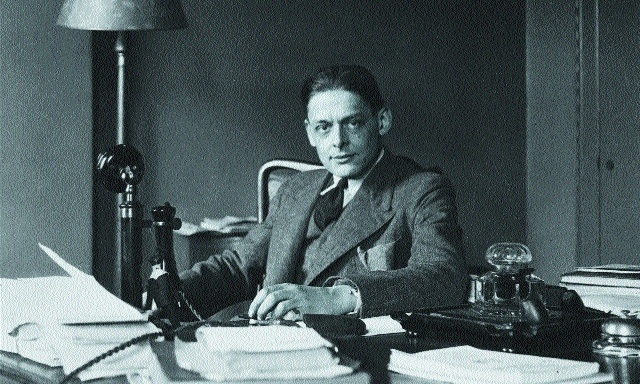Of turning blood into ink
| Date :04-Aug-2020 |

The legendary writer T S Eliot
By Vijay Phanshikar
“The purpose of literature is to turn blood into ink.”
-- T S Eliot
WHAT a profound statement from one of the most profound writers of all times! But very few could arrive at such a definition of literature’s purpose. But as T S Eliot talks of the purpose of literature, he also indirectly talks of its source -- the bleeding heart, the head gripped by outrage, the nerve-raking emotion, the intense reaction of the human individual to life’s victories and vagaries ...! Don’t all these constitute the human soul in essence?
Thus, when Eliot talks of turning blood into ink, he insists without using so many words that literature is the product of human soul, its reactions and responses to life! In other words, literature stems from the inner core of the human soul, the sanctum sanctorum of human existence. It is, thus, never a superficial exercise; it is, in short, an exercise that emerges from excrutiations of inner being, exultations of inner spirit! That is where truly good literature appears so totally different from the superficial type -- written just for the sake of writing, or engaged by interest of commerce ...!
True, the author or the poet picks up the pen and writes what he feels within. The process of writing, thus, is a method of extracting the essence of what is happening within, and turning that into words. The words may be written in ink, but are emoted in blood, fountaining from deep within, flourishing into fine expressions, funnelling into specific points in the reader’s absorbing mind. It is in that place -- in the reader’s mind -- that the words assume meaning, depending on how intense he reacts to the statement of the writer’s inner core.
That process of inking words stems from the writer’s blood-flow, from his heart, from his head, from his inner being, almost as if it is an offspring that the divine carves out of the mother’s being, ‘drawing’ blood, extracting essence of living, and communicating that through the ink as an outward medium oozing from the pen. Countless writers, therefore, have said time and again that they feel drained after they finish a piece of literature, fully exhausted, and eager to have a time out in a quiet corner.
Many also have said time and again that once they finish writing a piece of literature in an extempore flourish, they want only their own company, and no one else’s. For, the blood that is invested into the ink recuperates only in those moments of solitude, or one’s own company. Of course, there are some litterateurs who seek company -- of whatever kind and quality -- to get back in tune with themselves. But all the types agree that when they write, actually it is their soul that produces literature.